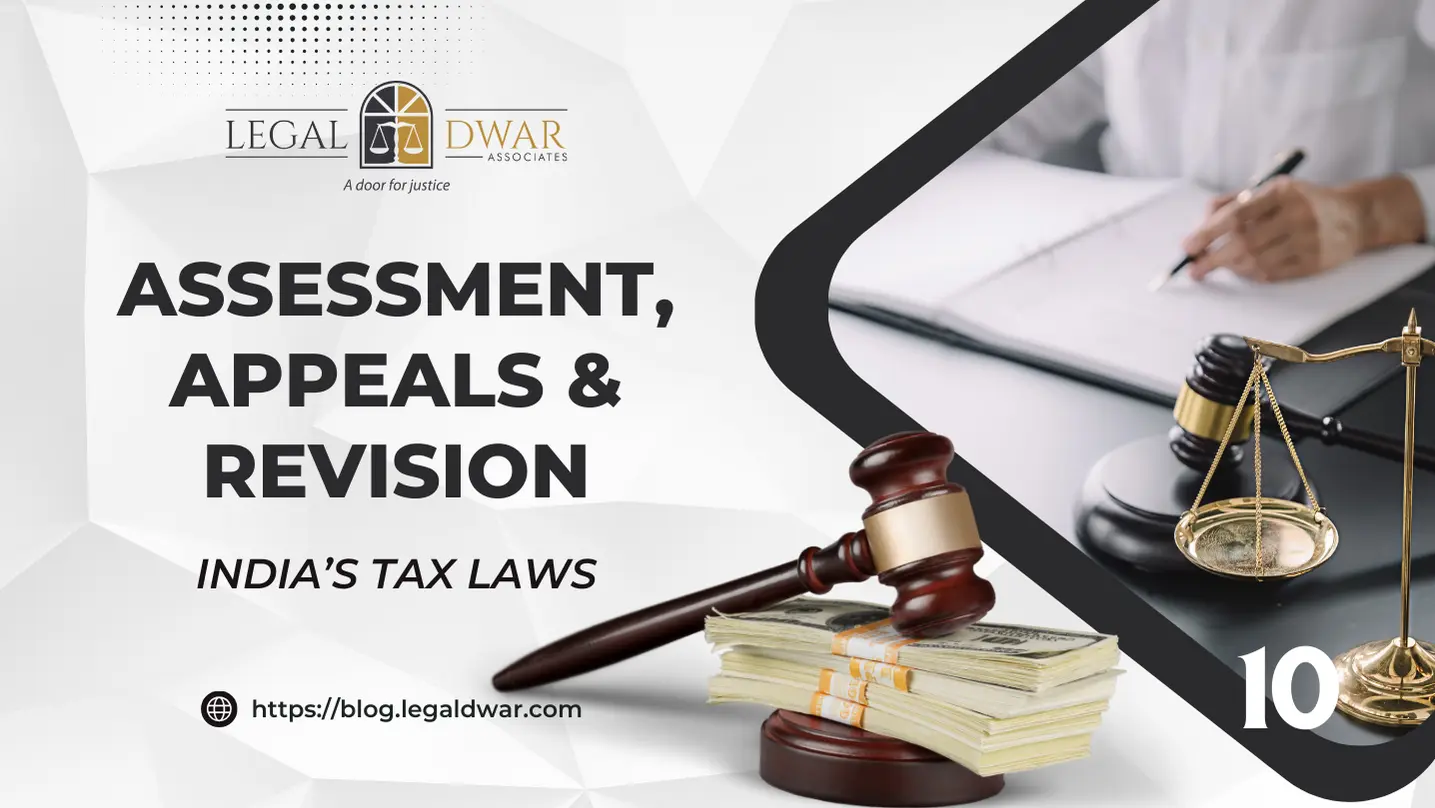
Indirect taxes form a fundamental component of fiscal policies, encompassing levies imposed on goods and services rather than directly on income. Understanding the concept involves unraveling its dual...

Corporate reorganisation within the purview of company law is a multifaceted process that involves strategic restructuring, compromises, arrangements, amalgamation, and other mechanisms to reshape the...

Legal guardianship is a vital legal concept that plays a crucial role in safeguarding the interests of individuals who may be unable to make decisions for themselves.

Living wills, often referred to as advance healthcare directives or medical directives, play a pivotal role in healthcare planning, empowering individuals to make crucial decisions about their medical...

The concept of a Power of Attorney (POA) holds significant weight in the realm of legal affairs, serving as a vital instrument for individuals to delegate decision-making authority. Understanding the ...

The Rajya Sabha, or the Council of States, stands as the upper house of the Indian Parliament, playing a pivotal role in the legislative process and governance of the nation. Comprising members with d...

Lok Sabha, translating to the "House of the People" in Hindi, is one of the two houses of the Parliament of India. Established as the lower house, the Lok Sabha plays a pivotal role in the country's l...

The Election Commission of India (ECI) stands as a cornerstone in the democratic fabric of the country. Rooted in the historical evolution of electoral bodies in pre-independence India, the ECI was fo...

The Hindu Marriage Act, of 1955, remains a landmark legislation that has shaped the legal landscape of matrimonial relations within the Hindu community, contributing to the establishment of a more org...

Sweat equity, a concept deeply entrenched in corporate practices, has evolved significantly, prompting the need for regulatory intervention.

India’s real estate market has been a hotbed of shady developers, rampant delays, and opaque dealings for decades. In this regard, buyer protection seemed like mirage with hidden costs, high prices ...

Taxation involves more than just filing returns; it encompasses a dynamic assessment, appeals, and revision process. This article provides a foundational understanding of this multifaceted domain, cov...

Inter-corporate financial transactions play a pivotal role in the dynamic landscape of corporate finance, serving as the financial arteries that connect entities within the business ecosystem. This ar...

The Securities and Exchange Board of India (SEBI) is the regulatory authority in India tasked with overseeing and regulating the securities market. Established in 1988, SEBI plays a pivotal role in ma...

Procedural compliance stands as the cornerstone for individuals and businesses alike. It involves adhering to a set of rules and regulations laid out by tax authorities to ensure accurate reporting, t...

In the complex world of corporate governance, Transparency and Disclosures stand as pillars that uphold the principles of accountability, trust, and ethical conduct. This section delves into the funda...

Private International Law (PIL) plays a crucial role in navigating the complex web of legal relationships that span across borders. We will provide a foundational understanding of PIL, including its d...

Self-Help Groups (SHGs) are informal associations of people who come together to find ways to improve their living conditions. Generally, these groups are self-governed and peer-controlled, fostering ...

Delisting equity shares is a significant corporate action, and in India, this process is governed by the Securities and Exchange Board of India (SEBI) through the Delisting of Equity Shares Regulation...

Taxation is a fundamental aspect of a company's financial story, shaping its contribution to the economy and ensuring compliance with regulatory norms. In India, the taxation framework for companies i...

In the complex world of corporate governance and financial management, understanding the core principles of accounts, audit, and the pivotal role of auditors is essential. This article provides a foun...

At the heart of the Indian financial landscape, the SEBI (Buyback of Securities) Regulations, 1998, stand as a robust framework designed to govern the intricacies of security buybacks. This regulatory...

In the complex terrain of taxation, the computation of total income and tax liability stands as a critical cornerstone. Understanding these concepts is not just a matter of financial acumen but holds ...

Corporate Social Responsibility (CSR) is the ethical framework that outlines a company's efforts to contribute positively to society. It goes beyond profit-making and emphasizes a commitment to enviro...

The corporate landscape is a dynamic arena where ownership structures can shift, and power can change hands. In the Indian context, the Securities and Exchange Board of India (SEBI) has set forth comp...

Taxation can often seem like a labyrinth of rules and calculations, but at its heart lie three critical concepts: deductions, rebates, and relief. These elements play a pivotal role in shaping the fin...

Profit distribution lies at the core of corporate operations, delineating how a company allocates its earnings among various stakeholders. In the context of Indian corporate governance, comprehending ...

The Registrar of Companies, commonly known as RoC, serves as a pivotal authority in the regulatory framework governing companies. It is a statutory office under the Ministry of Corporate Affairs (MCA)...

In the intricate tapestry of India's financial landscape, the Securities and Exchange Board of India (SEBI) plays a crucial role in weaving the threads of transparency, accountability, and investor pr...

Clubbing provisions in the Indian Income Tax Act refer to the inclusion of certain incomes in the total income of an assessee, which may originally belong to another person. This is done to prevent ta...

In the corporate realm, "charges" refer to the security interest or lien created on a company's assets. These assets can include tangible assets like machinery and intangible assets like intellectual ...

The Securities and Exchange Board of India (SEBI) is the regulatory authority governing the securities market in India. Established in 1988, SEBI plays a pivotal role in safeguarding investor interest...

Income computation refers to the systematic process of determining an individual's or entity's total income from various sources in a given financial period. It involves the assessment and calculation...

The Supreme Court of India, the apex judicial body in the country, has played a pivotal role in shaping and redefining the legal landscape. Beyond interpreting laws, it serves as the guardian of funda...

Debt instruments hold a significant place in corporate finance, acting as a crucial avenue for companies to raise capital by issuing financial securities. In the realm of Indian judiciary and company ...

The Depositories Act, of 1996, forms the backbone of the Indian financial system, revolutionizing the way securities are held and traded. Enacted to promote transparency and efficiency, it introduced ...

Stray dog management is a critical concern that involves finding a delicate balance between ensuring public safety and safeguarding animal rights. The issue pertains to the coexistence of humans and s...

The Securities and Exchange Board of India (SEBI) Act, enacted in 1992, serves as the primary regulatory framework governing securities markets in the country. Established to address the need for a ro...

The Securities Contracts (Regulation) Act, 1956 (SCR Act) stands as a pivotal legislation in the realm of Indian securities markets. Enacted with the primary objective of preventing undesirable transa...

The concept of "Total Income" lies at the heart of India's taxation framework, playing a pivotal role in determining an individual's or entity's tax liability. It encompasses all earnings, profits, an...

The Finance Bill stands as a crucial document in India's legislative landscape, especially concerning income taxation. It serves as the gateway for changes in tax laws and financial policies, unveiled...

Direct Taxes, as a pivotal component of tax laws, play a central role in shaping a nation's revenue system. These taxes are characterized by their direct impact on individuals and businesses, with inc...

Navigating the intricate landscape of Company Law requires a comprehensive understanding of the roles and processes associated with members and shareholders. This article serves as a detailed guide, s...

Shares and share capital form the cornerstone of a company's financial structure, shaping its identity and influencing its operations. Understanding these concepts is crucial for investors, stakeholde...

In the complex landscape of legal frameworks, Company Law stands as a cornerstone, governing the establishment, functioning, and dissolution of entities known as companies. To comprehend the nuances o...

Consumer protection is a fundamental concept that safeguards the interests and rights of individuals who engage in transactions as buyers of goods and services. It is a crucial aspect of a well-functi...

Lok Adalat, a term rooted in Hindi, translates to "People's Court." It represents a unique and decentralized mechanism of alternative dispute resolution (ADR) in India. Unlike traditional judicial pro...

India's legal profession is renowned for its rich history and diverse practice areas. Encompassing a vast and complex legal system, it plays a pivotal role in shaping the country's governance, justice...

Sexual harassment is an issue that transcends gender, impacting individuals in various aspects of their lives. It is a form of misconduct that can cause emotional distress, disrupt professional and pe...

India's legal system serves as the backbone of our society, ensuring order, justice, and fairness in our daily lives. Whether you're a citizen, a business owner, or an aspiring legal professional, hav...

Contracts are an integral part of our daily lives, from purchasing a cup of coffee to buying a house. A contract is a legally binding agreement between two or more parties that outlines each party's r...

As Indian citizens, it is essential to understand our rights, privileges, and duties. Knowing our rights helps us make informed decisions, defend ourselves against injustice, and hold the government a...

Launching a startup is an exhilarating journey filled with innovation, ambition, and the pursuit of turning groundbreaking ideas into thriving businesses. Yet, amid the whirlwind of entrepreneurial ex...

Employment law in India holds profound significance for both employers and employees as it governs the entire spectrum of employer-employee relationships, ensuring fair treatment, rights, and duties. ...

Social media has become an integral part of our daily lives, allowing us to connect and communicate with people from all over the world. In India, platforms like Facebook, Twitter, Instagram, and What...

Supreme Court decisions hold a special place in the history of Indian jurisprudence, acting as guiding beacons that illuminate the path of justice. In the intricate tapestry of India's legal framework...

Choosing the right lawyer is a critical decision that can significantly impact the outcome of your legal case. Whether you find yourself in a complex litigation battle, need guidance for a personal in...

The term "Advocate on Record" is primarily associated with the legal system in India, particularly within the context of the Supreme Court of India. An Advocate on Record is a legal professional who p...
Unlock the Power of Legal Knowledge: Join Our Newsletter and Empower Yourself Today!